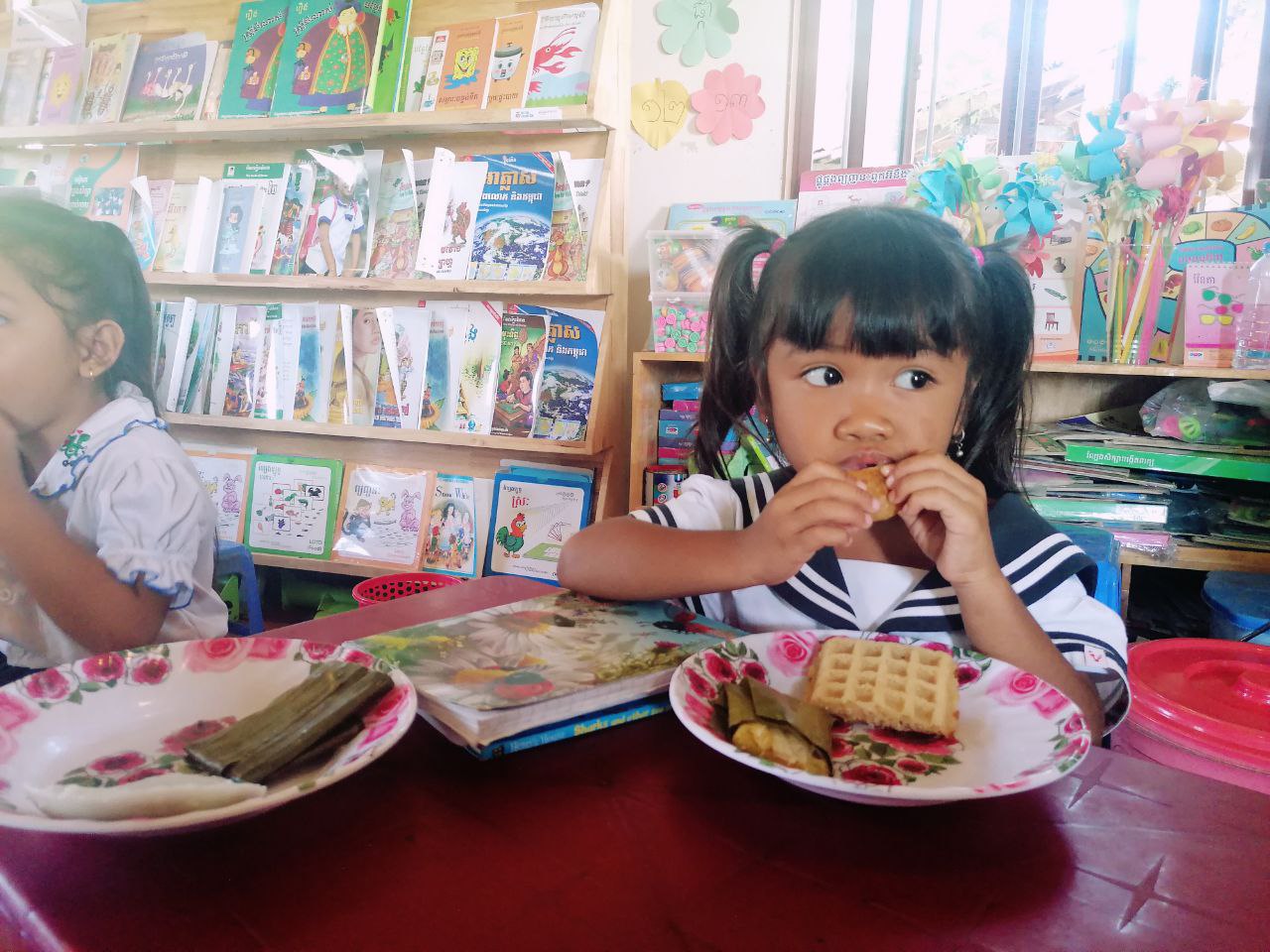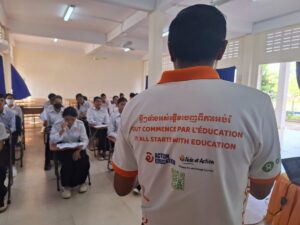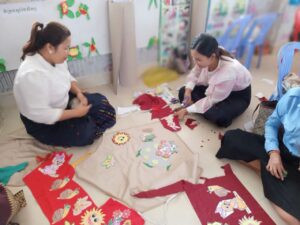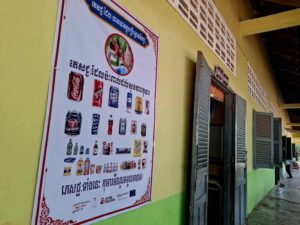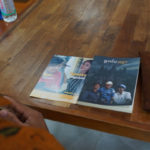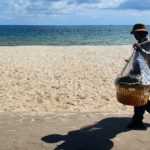A small, rural community pre-school called Prey Takoy is located in the middle of rice fields in Kep, Cambodia. This morning, 18 children from 3 to 6 years old are having a great time running around and playing in the schoolyard before eating. 6 year-old Narin says: “I eat cake and rice with pork.” When asked if she enjoys the food served at school, she smiles and adds: “So so. It’s OK.” Narin’s teacher, Sokhom, 34, orders food for the students every day. “Children prefer eggs and rice with vegetables. I change school meals regularly to ensure the diet is varied. I can sometimes include a cake, some bread, or fresh fruit. In this school, children can eat one healthy meal per day.”
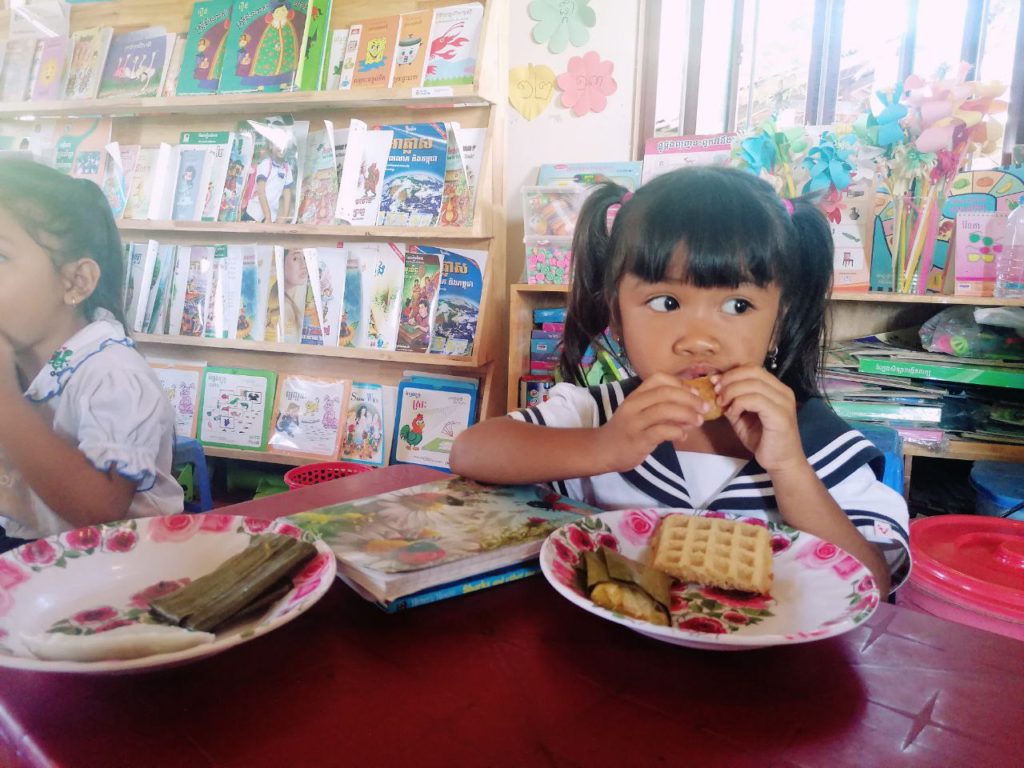
As she goes about her everyday tasks, Sokhom contributes to the right to food and the Sustainable Development Goal 2 – which aims to end hunger, achieve food security, improve nutrition, and promote sustainable agriculture. As a teacher in a pre-school, her role is very important because childhood is a period of rapid growth and development, which is crucial for nutrition education. Sokhom likes to teach good eating habits, which are largely formed throughout the first few years of childhood. Children who listened to their teacher rush outside to wash their hands after breakfast.
The EU co-funded CO-SAVED project led by Aide et Action (Action Education) and implemented by 40 partners supports the pre-school where Sokhom works. The goal of the project is to improve vulnerable children’s access to school services including meals but the project offers a range of activities, including teacher training, or safe water, sanitation, and hygiene services. The young lady remembers training about school management and in-kind donations. “There was a box containing books, notebooks, pencils, papers, posters, and alphabet-learning games.”
Due to the prevalence of food insecurity and undernutrition, Sokhom’s involvement in community life is essential. The figures speak for themselves. According to the World Bank statistics, nearly 2,5 million Cambodians experienced severe food insecurity in 2020. The World Food Programme reported that one out of three children under 5 years of age is stunted, while 10 percent suffer from wasting in Cambodia. There is a need to step up efforts to ensure that the most vulnerable children in the Global South regularly have access to safe, nutritious, and sufficient food, in particular for the poor and rural families, who are most vulnerable to climate change.



